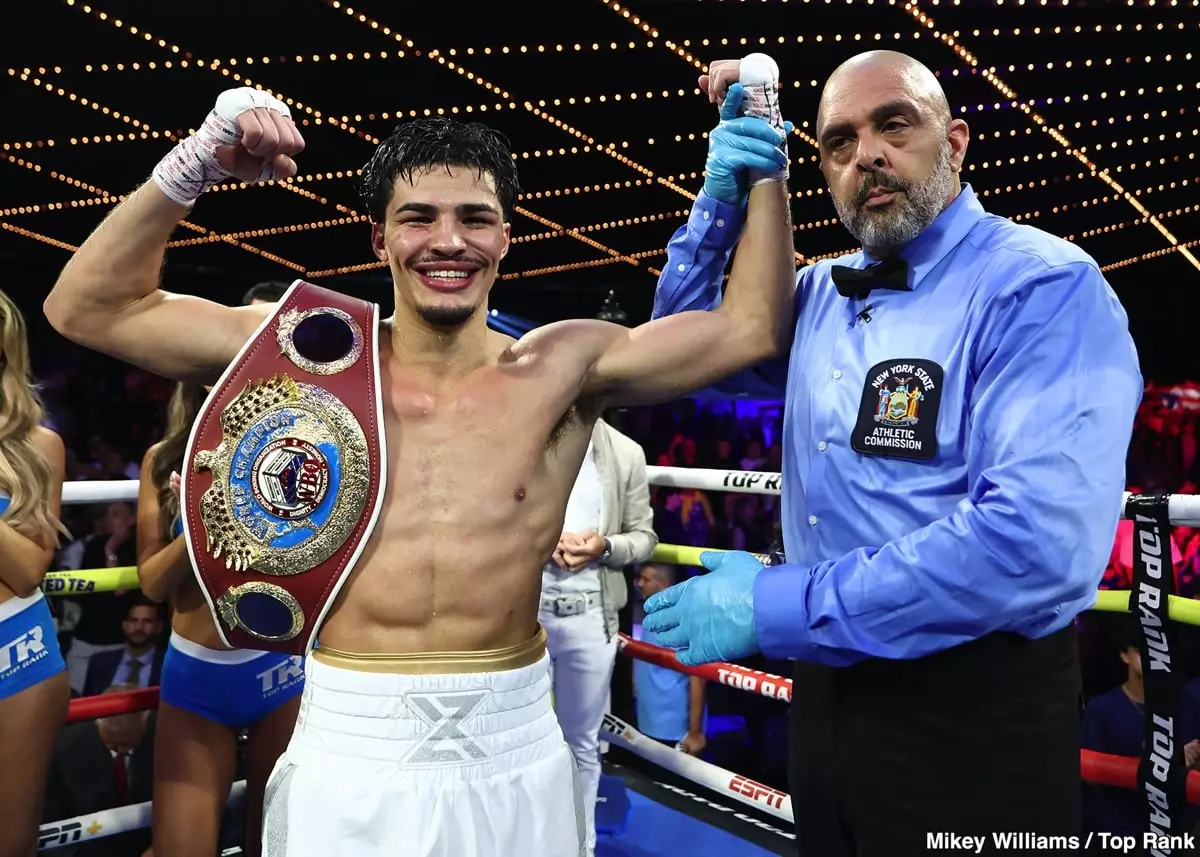In an era where social media often amplifies egos and obscures reality, the narrative of meritocracy in boxing has become a fragile illusion. Xander Zayas’ recent rise to interim champion by defeating Jorge Garcia epitomizes how strategic matchmaking can manufacture a “champion.” It’s not necessarily about the fighter’s actual skill or resilience but about navigating the labyrinth of promoters, sanctioning bodies, and rankings. The youth and undefeated record of Zayas, 22 years old and 13 KOs, have been used as a marketing tool to generate hype rather than a true reflection of his readiness to dominate the division. Many fans remain naive to the fact that these quick ascents often mask a carefully choreographed path rather than genuine combat excellence.
On the other hand, Vergil Ortiz Jr.’s comments highlight a crucial but often overlooked aspect: experience. Despite being called “food” by some, Ortiz is an eight-year professional veteran who has yet to fight for a true world title. His career trajectory reflects the difficulties of maneuvering within a system that often prioritizes political positioning over merit. Ortiz’s frustration is rooted in watching younger, less tested fighters—like Zayas—being fast-tracked into title contention, revealing how uneven the playing field truly is. This disparity exposes boxing’s hypocrisy where the narrative of fair competition is often a façade crafted by powerful stakeholders.
The Power Dynamics Behind the Scenes
The contrast between Zayas’ apparent smooth rise and Ortiz’s perceived stagnation exposes the political machinations ingrained in the sport. Promoters like Top Rank are adept at strategically aligning fighters with the sanctioning bodies, ensuring their athletes are placed at the forefront through calculated endeavors like ranking manipulations and sanctioning belt acquisitions. Conversely, Ortiz’s promoters at Golden Boy appear less adept at navigating these treacherous waters, resulting in a career that feels more like waiting in line than sprinting towards greatness.
This imbalance raises questions about fairness and what it truly means to be a champion. When fighters are strategically placed instead of earned through genuine competition, the sport’s legitimacy is compromised. We are often led to believe that victories reflect true prowess, but in reality, they may just reflect who’s better at playing the political game. The current landscape fosters a false sense of progression in the sport, where fighter development is secondary to promotional interests and sanctioning strategies.
The Future of Boxing: A Call for Authenticity
Looking forward, the boxing community must critically evaluate the narratives pushed by promoters and fighters alike. The obsession with titles and rankings has clouded the sport’s true essence: fierce, fair, and honest competition. If champions are only crowned through a web of political maneuvering, the sport risks losing its credibility altogether.
In this context, Ortiz’s candid frustration represents a call to re-examine the pathways to greatness. Genuine respect in boxing should be reserved for those who consistently demonstrate resilience, skill, and integrity in the ring—not merely those who are fortunate enough to be placed there by the right people at the right time. The sport needs a cultural shift that prioritizes merit over marketing and corporate manipulation. Only then can boxing truly reclaim its identity as the ultimate test of individual grit and talent.

